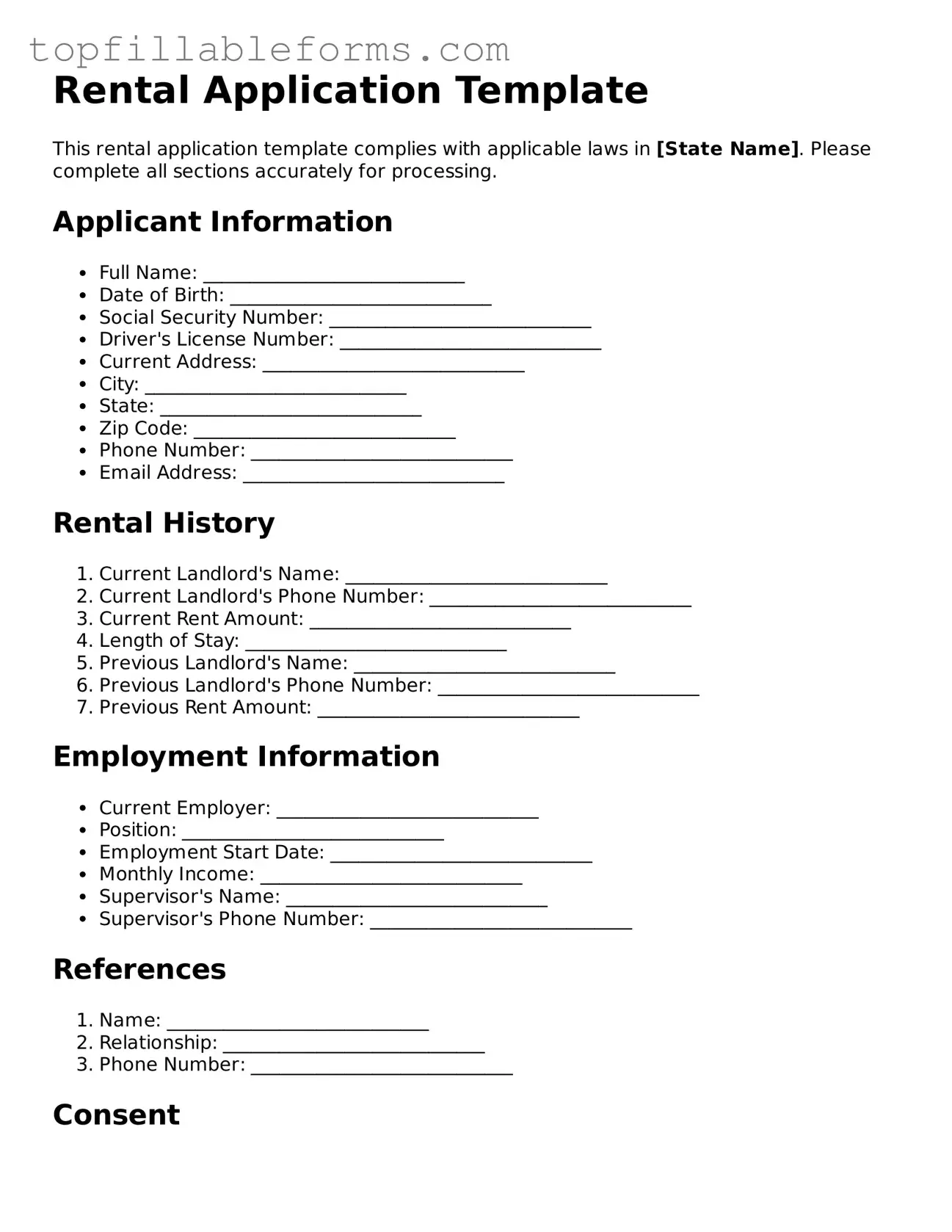Free Rental Application Form
A Rental Application form is a document that potential tenants complete to express their interest in renting a property. This form collects essential information about the applicant, including personal details, rental history, and financial background. By reviewing this information, landlords can make informed decisions about prospective tenants.
Open Rental Application Editor Here

Free Rental Application Form
Open Rental Application Editor Here
Finish the form now and be done
Finish your Rental Application online by editing, saving, and downloading fast.
Open Rental Application Editor Here
or
▼ PDF File
